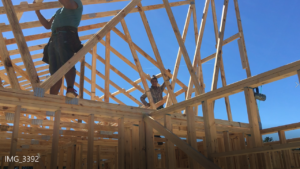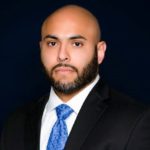by Mohammad Sherif, Esq.

Contractors build a new roof
The passage of House Bill 7065 brings with it widespread AOB reform to outline processes for dispute resolution under an assignment of benefits. For example, contractors and other service providers are required to provide insurance companies with at least 10 days’ notice of a dispute prior to filing a lawsuit. However, can service providers negotiate their services on behalf of homeowners directly with insurance companies without an assignment of benefits? If so, do contractors risk engaging in unlicensed adjusting?
Yes, contractors can discuss its services and scope of repairs directly with insurance companies, which is a public policy consideration exempted from “public adjusting” as outlined in Section 626.854(15), Florida Statutes. Specifically the statute states “…the contractor may discuss or explain a bid for construction or repair of covered property with the residential property owner who suffered loss of damage covered by a property insurance policy, or the insurer of such property, if the contractor is doing so for the usual and customary fees applicable to the work to be performed as stated in the contract between the contractor and the insured.” Essentially, the statute contemplates scope of work and charges related to said work as part of the contractor’s functions, which the contractor may discuss directly with the insurance company without implicating public adjusting regulations.
Notwithstanding, contractors should always operate with great care when conducting repair work related to an insurance claim. Problems arise regarding allegations of unlicensed adjusting if contractors interject into coverage-related issues or make representations to homeowners that it will “handle” or “take care of” the insurance claim. The most prudent business practice for service providers is to operate under the assumption no insurance exists at all.
The Florida Legislature clearly intended to include the determination for the scope of damage and the determination of the insurer’s obligations related to these damages as functions of an adjuster. The adjuster documents the scope of damage, estimates costs for repair, and determines what portion of the costs the insurer is responsible for under the insurance policy. The ultimate coverage determination and the amount of damages are issues between the homeowner and the insurance company, not the contractor or other service providers.
However, when discrepancies exist between the contractor’s stated scope and cost of repairs, it is appropriate for contractors to discuss these differences directly with the insurance company, as long as the contractor limits the discussion to scope of repair and avoids questions of coverage. The contractor’s final scope may differ from covered items under the insurance policy. The contractor is professionally obligated to adhere to construction codes regardless of whether the insurance company is obligated to pay for repairs to ensure compliance with applicable codes.

Mohammad Sherif, Partner, Mubarak & Sherif, PLLC
Mohammad Sherif began his legal career working as a Regulatory Attorney and Senior Litigation Attorney for the Florida Office of Insurance Regulation. Mr. Sherif then spent nine years working as in-house counsel for several Florida insurance carriers focused heavily on residential and commercial property claims coverage matters, litigation defense strategies and enterprise risk management. Mr. Sherif is currently a partner at Mubarak & Sherif, PLLC, a law firm that focuses exclusively on helping homeowners in the panhandle with Hurricane Michael claims.
LMA Newsletter of 7-1-19

